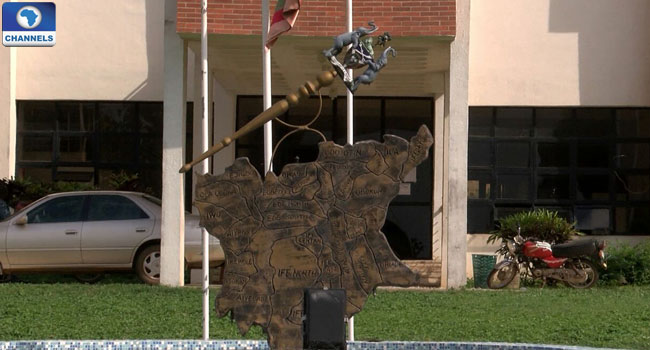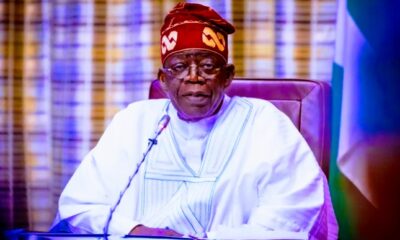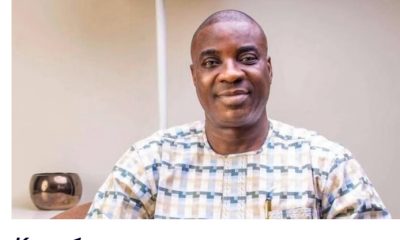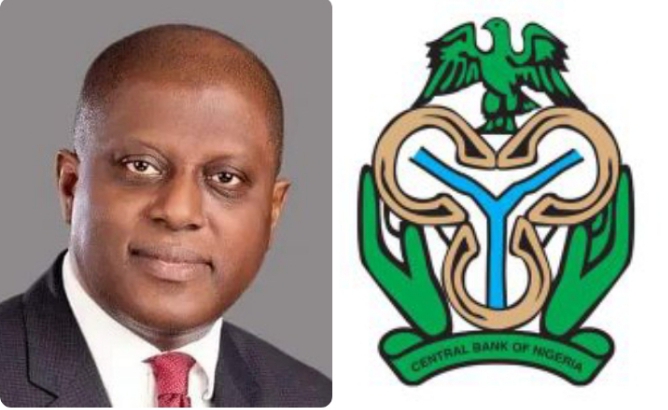Osun News
Osun 8th House Of Assembly Speakership: Before a Toddler Leads Men

In every democratic state, there are fundamental principles that form the foundation of good governance. In virtually all democratic system, there are three basic arms of government, namely the legislature, executive and the judiciary. The primary role of the legislature is to make laws, the executive implements or execute such laws and the judiciary interprets the laws.
This system of government it is argued provides safeguard against concentration of too much power in a single authority.
While stressing that tyranny results when all the three branches of government are concentrated in one branch, Montesquieu said: to preserve political liberty, the constitution should ensure that the power of one branch of government should not be exercised by the same person(s) which posses the power of another branch (Okoro, 2017). Thus, certain principles guide operations of the three arms so as to avoid encroachment into the realm of others as well as ensuring accountability. Such principles are separation of powers and checks and balances. Each arm of government performs defined functions and serves as watchdog of the others.
These various arms of government perform complimentary roles, all working together to promote the rule of law and to ensure that the citizens of a nation enjoy good governance (PLAC, 2016). In the light of the above established doctrine of separation of power, most constitutional democracy enshrined this principle in the organic law of the land.
Similarly the Constitution of Federal Republic of Nigeria 1999 (amended) provided for division of power amongst the legislative, executive and judicial arms of government in sections 4, 5, and 6 respectively. In other to meet the socio-economic needs of the people and to ensure good governance, there is the need for checks and balances amongst the various arms of government (Okoro, 2017).
The state of the legislature has been identified as the strongest predictors on the survival of every democratic development (Okoosi-Simbine, 2010). Legislature serves as essential constituent for any democratic government and major factor in its sustenance. Its existence predates the advent of modern democracy. It has been noted that the emergence of the legislature dates back to the twelve century and a product of medieval European civilization transformed in the age of democracy to suit the needs of contemporary political systems (Loewenberg 1995).
The existence of legislative institution comprises representatives of the people as a hallmark of democratic government from non-democratic ones. The legislature differs in composition from one system of government to another as well as in their mode of representation and in all of these, Osun State is not an exception.
If the Legislature is the strongest predictors on the survival of every democratic development, it’s leadership becomes key and not one to be used for loyalty compensation and tossed in the hand of a neophyte.
If the recent promotion of one Egbedun Adewale is true as the choice for speakership o f the Osun State house of Assembly by the ruling party and the Governor, it would be easy to predict how docile and uneventful the eight assembly in the state would be.
Given that the constitution provides that a speaker shall be elected among the members of the house as provided for by Chapter 5. Part 2. Section 92. (1) There shall be a Speaker and a Deputy Speaker of a House of Assembly who shall be elected by the members of the House from among themselves, every assembly across the world has its own rule and that of Osun State provides that the Speaker of the House o f Assembly shall be from among the ranking members-elect of the House of Assembly.
While it is unimportant to affirm that the provision of the constitution is superior to any other rule and as such a first timer CAN be speaker of the house of Assembly, it is my opinion and ideally so that only when there are no ranking members should that be a consideration except for political correctness against norms and standards .
Leadership of a state house of assembly demands experience and understanding of rules and practice of the house which will only be taught to new members at inauguration.
By political calculation subject to no rule, the speaker of the Eight assembly has been touted to come from the central senatorial district of the state given that the Governor is from the west and his deputy from the east. The question will then be, isn’t there a ranking member from the central district of the state? There is and they are more than even one.
If there is a ranking member of the soon to be inaugurated eight assembly from the central, what makes them unqualified or unappealing to the Governor of the state or the party that will obviously produce the speaker?
The rumored insistence of the Governor and the Ruling party to jettison experienced lawmakers and enthrone a neophyte breeds suspicion of the likelihood of wanting to install a stooge and not a functional speaker.
A background check of the rumored choice of the PDP and the governor turns in a man with unknown record not just as an administrator or public office holder but even in private life. He is relatively naive and uninspiring and is hardly known to the people except for the grace of the tsunami of the PDP victory in the last general elections.
While Egbedun can be speaker, it should not be now. He should be allowed to learn the ropes and understand the business of the legislature.
Osun state at this time deserves a speaker that can actually SPEAK and not some ‘yes, your Excellency’ kind of assembly speaker who does only the bidding of the executive leaving out its own constitutional duty of independence and check on the executive.
The Speaker is described as the Legislative Assembly’s “independent and impartial representative”.
The Speaker’s role in the House is to maintain order, put questions after debate and conduct divisions. In maintaining order the Speaker interprets and applies the Standing Orders and practice of the House by making rulings and decisions. The Speaker’s decisions are, however, subject to the will of the House exercised through a motion of dissent. How does a newbie understand and imbibe these orders?
The Speaker is the mouthpiece for the House, for example, conveying Messages and Addresses from the House to the Governor. The Speaker is also charged with upholding the rights and privileges of Members and of the House and how does a ‘yes sir’ speaker uphold the rights of the members?
Arguments has been advanced about setting a precedence by Osun having the youngest Assembly speaker and as beautiful as that sounds, we should not forget and too soon too how the clamour for a first female governor in the country paved way for almost an upturn of democratic tenet in Adamawa State.
If it has to be, however beautiful the idea sounds, it MUST not be at the expense of the love of the state.
May Osun State succeed.
Ayodeji Ologun
Writes from Osogbo
-

 News3 days ago
News3 days agoFG increases workers salary
-

 Politics1 day ago
Politics1 day agoWasiu Ayinde’s Daughter Gets Political Appointment
-

 Gists5 days ago
Gists5 days agoNigeria Ranked 6th With Largest Pen!s Size Globally (Full List)
-

 Education4 days ago
Education4 days agoJAMB releases 2024 UTME results ( See How To Check)
-

 Business4 days ago
Business4 days agoCBN Sends Warning Message To OPay, Palmpay, Others Over Customers Accounts
-

 Metro/Crime6 days ago
Metro/Crime6 days agoFashion Designer, Okada Rider Die In Osogbo Auto Crash
-

 Business5 days ago
Business5 days agoLatest Dollar To Naira Exchange Rate Today
-

 Politics5 days ago
Politics5 days agoTinubu to reshuffle cabinet, as some ministers marked for replacement



